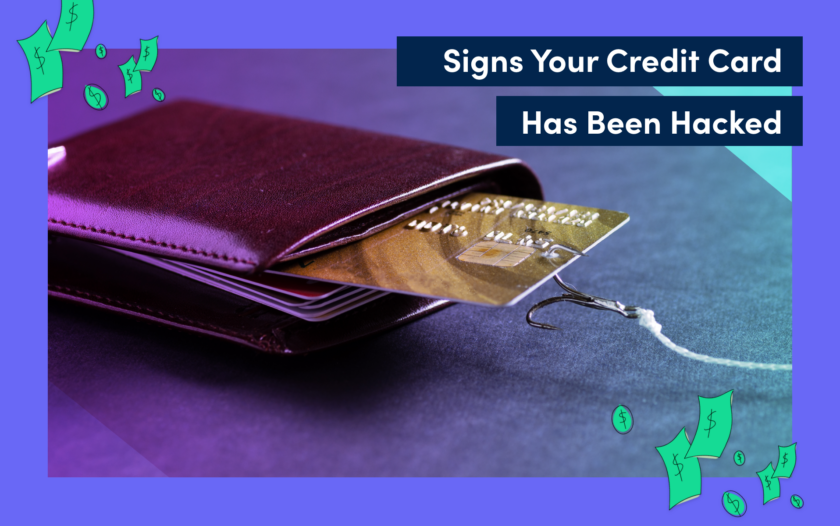8 Signs Your Credit Card May Have Been Hacked
About Harrison
Harrison Pierce is a writer and a digital nomad, specializing in personal finance with a focus on credit cards. He is a graduate of the University of North Carolina at Chapel Hill with a major in sociology and is currently traveling the world.
Read full bio
At a Glance
In today’s digital age, where convenience often comes hand in hand with vulnerability, safeguarding your financial information is paramount. Credit cards have become an integral part of modern life, facilitating easy transactions and purchases. However, with the increasing prevalence of cyberattacks and data breaches, it’s crucial to remain vigilant and watchful for any signs that your credit card might have been hacked. Let’s explore eight key indicators that could signal your credit card has fallen victim to unauthorized access.
- You notice strange purchases
- You get notifications of small charges
- You see unfamiliar company names on your statement
- You get a payment notification from another location
- You have a lower available credit balance
- You have unusual card history
- You get a call from the bank
- You receive new credit cards you didn’t apply for
- FAQs
389,737
The total number of U.S. credit card fraud reports in 2021.


You notice strange purchases
One of the most noticeable signs that your credit card might have been hacked is the appearance of unfamiliar or unauthorized purchases on your statement. If you come across transactions that you didn’t make or seem suspicious, it’s time to take immediate action. Keep a close eye on your monthly statements and transaction history to quickly spot any irregularities.
You get notifications of small charges
Hackers often employ a stealthy approach by making small test charges before attempting larger unauthorized transactions. Receiving notifications about minor charges you don’t recognize could be an early warning sign of a potential credit card breach. Don’t dismiss these alerts, as they might be a precursor to more significant fraudulent activity.
You see unfamiliar company names on your statement
Review your credit card statements diligently and look for payments to unfamiliar company names or merchants. Cybercriminals may attempt to camouflage their activity by using inconspicuous merchant titles, making it harder for you to detect fraudulent transactions.
You get a payment notification from another location
If you start receiving payment notifications or alerts from locations you haven’t visited or conducted any transactions in, it’s a strong indication that your credit card information might have been compromised. Be wary of any activity that seems geographically inconsistent with your usual spending habits.
You have a lower available credit balance
A sudden and unexplained decrease in your available credit balance could indicate unauthorized access. Hackers might have exploited your credit card to make purchases, causing a reduction in your available credit. Regularly monitor your credit limits to promptly catch any unexpected changes.
You have unusual card history
If you notice changes in your card’s transaction history, such as withdrawals or cash advances you didn’t initiate, it’s a red flag for potential hacking. Hackers may attempt to extract funds using various methods, so reviewing your transaction history carefully is crucial.
You get a call from the bank
Financial institutions have robust fraud detection systems that can identify suspicious activity on your credit card. If you receive a call from your bank inquiring about unfamiliar transactions, take it seriously. They might notify you of potential fraudulent activity and guide you on the necessary steps to mitigate the risk.
You receive new credit cards you didn’t apply for
Receiving new credit cards in the mail that you didn’t request is a glaring sign that your credit card information might have been compromised. Cybercriminals could have used your details to open new accounts, leading to potential financial and credit-related repercussions.
FAQs
Signs of a hacked credit card include noticing strange purchases, receiving notifications of minor charges, spotting unfamiliar company names on your statement, getting payment notifications from unfamiliar locations, experiencing a lower available credit balance, observing unusual card history, receiving calls from your bank about suspicious transactions, and receiving new credit cards you didn’t apply for.
Credit card hacking can occur through various methods, including data breaches, phishing attacks, malware, skimming devices, and social engineering. Hackers exploit vulnerabilities in security systems to gain unauthorized access to credit card information.
Regularly reviewing your credit card statements, transaction history, and account balances is essential to identify unauthorized activity. Enabling transaction notifications and alerts from your bank can also help you quickly detect and respond to suspicious transactions.









